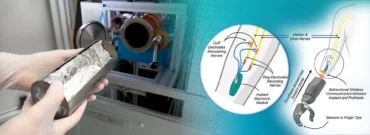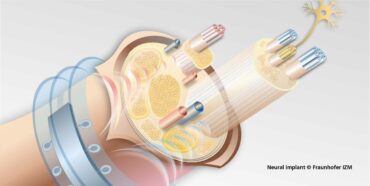Tag - Implants
Progress in our understanding of biological processes and in the miniaturization of electronics have paved the way for bioelectronics as a promising and innovative area for research. The lack of any common ground between biology and electronics is deceptive: Biology seems to deal only with the basic building blocks of life, like cells or proteins, and electronics seems removed from nature with its chips and transistors.
But there is one surprising commonality between the two: Electronic circuits and biological systems both use electrical stimuli to share and process information. The human brain includes around 100 billion neural cells, connected via intricate biochemical and electrical links. They only differ in how they communicate in the means they use to carry the electrical charge: organic cells use ions, semiconductors use electrons. Bioelectronics becomes the link between these two unexpected twins.


